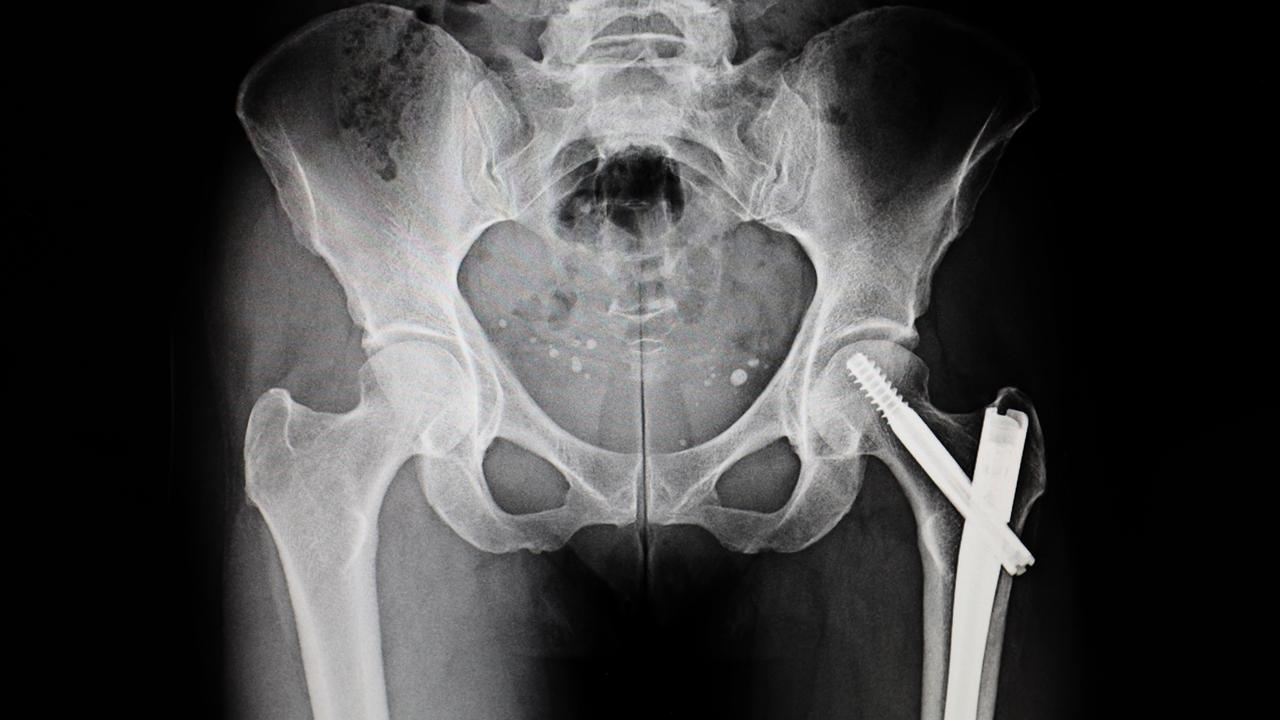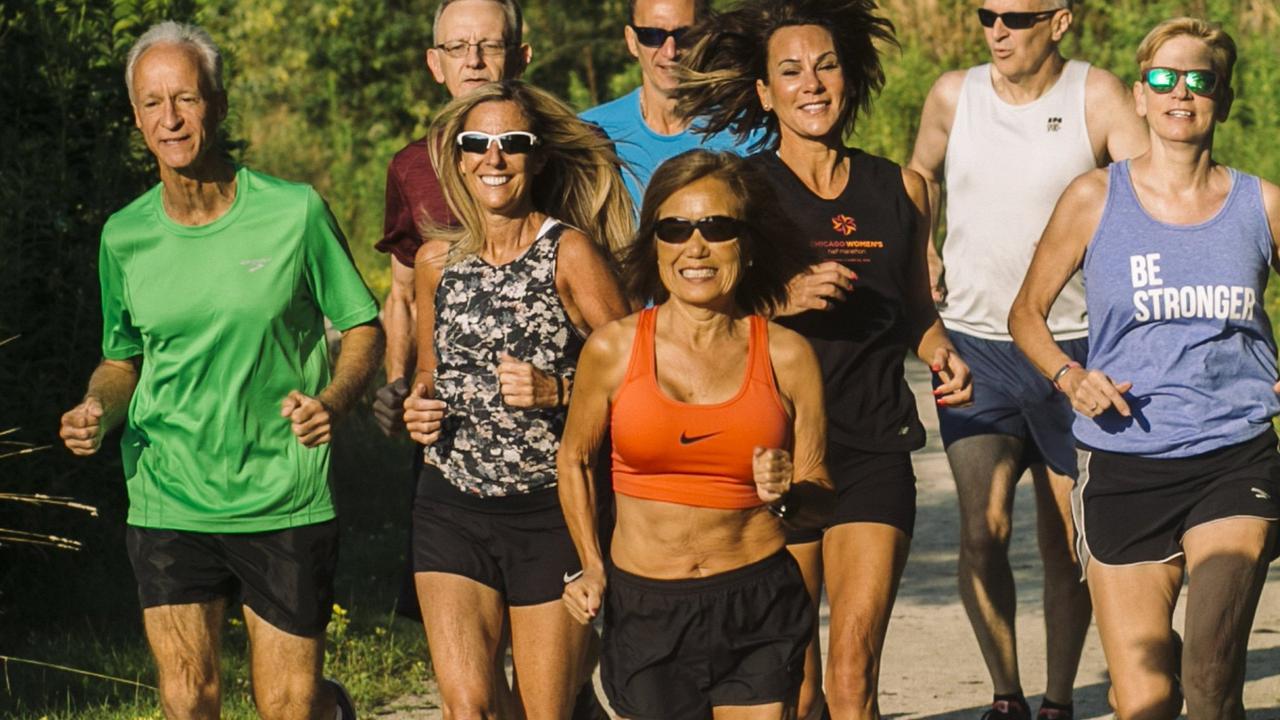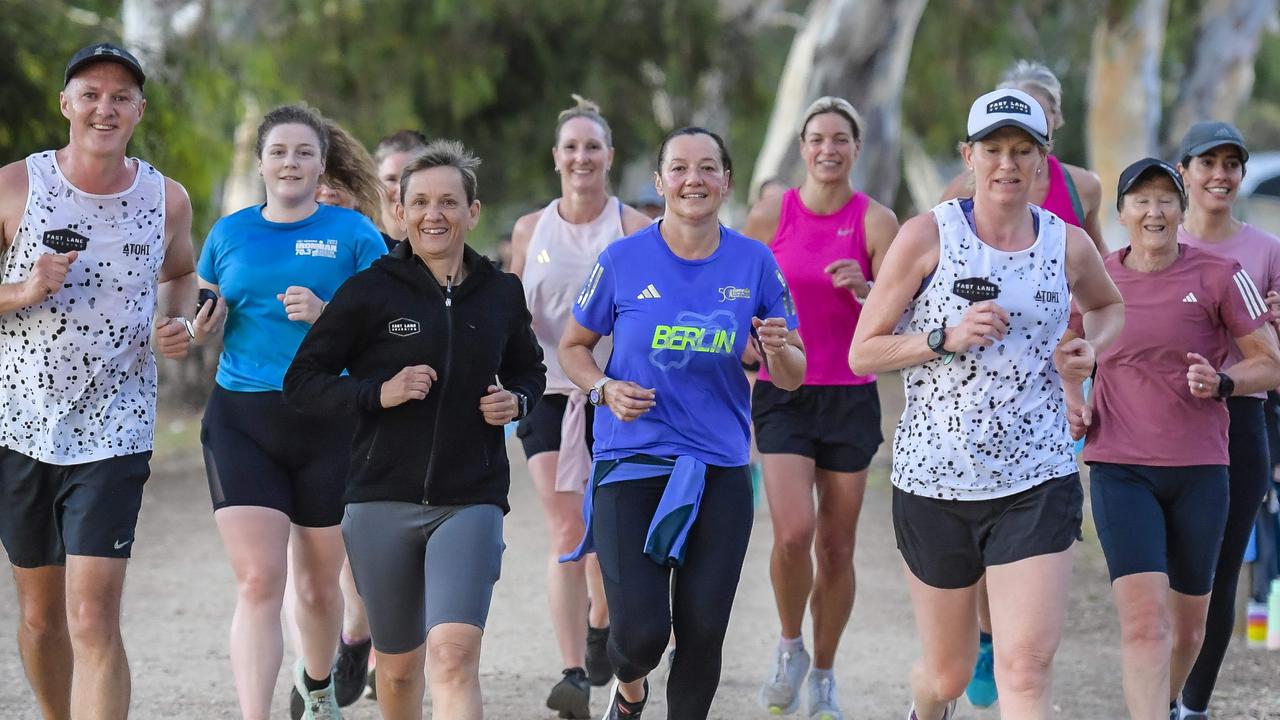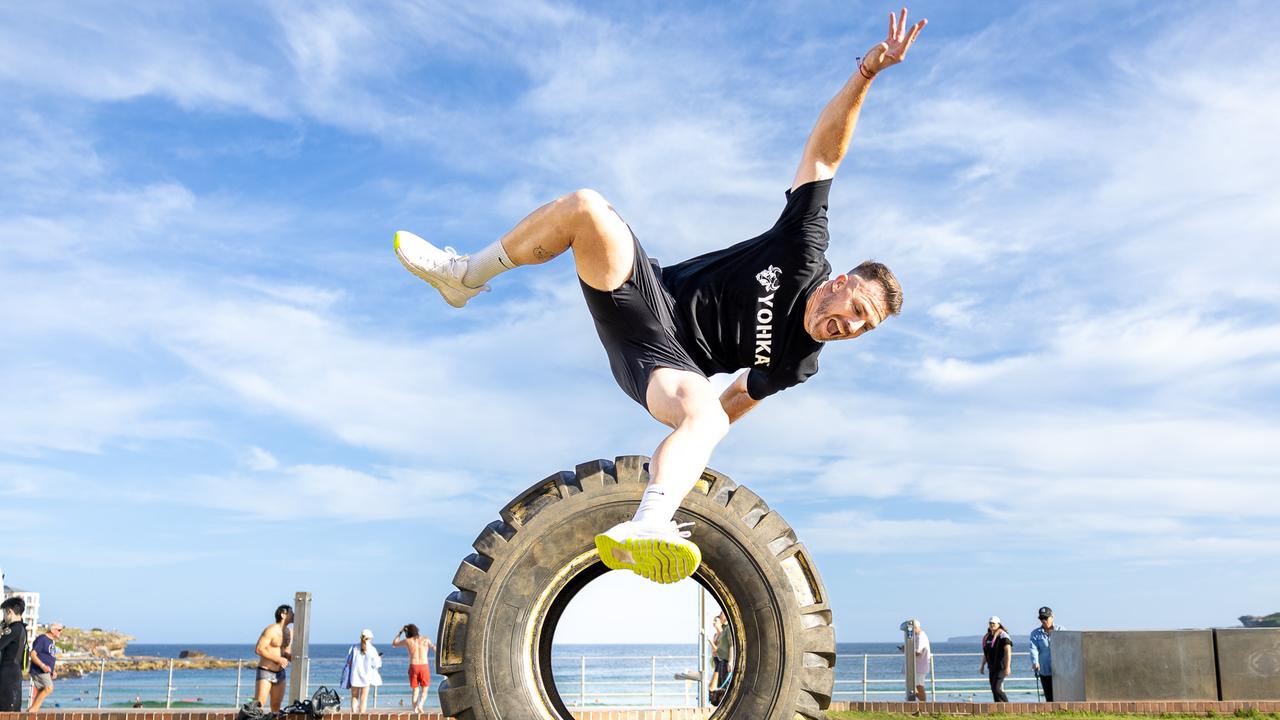Middle-aged ‘running revolution’ causing spike in knee, hip surgeries
A middle-aged “running revolution” means many people 30 and over are getting back to pounding the pavement. But they need to be aware of this.

Cardio
Don't miss out on the headlines from Cardio. Followed categories will be added to My News.
A middle-aged running revolution has seen a surge in joint and muscle injuries with many sufferers needing knee or hips surgeries, according to a leading orthopaedic surgeon.
Run clubs have been popping up all over Australia with everyone from beginners to marathon runners looking to stay fit, find friendship or even find love.
The Brisbane Social Run Club Facebook group has over 5000 members, while the Brisbane Girls Run Club has 3400.
But the love of pounding the pavement has doctors seeing a spike in patients presenting with running-related injuries.
Mater surgeon Nicola Ward has been treating about six patients, aged from 30 to 55, every month at South Brisbane’s Mater Private Hospital who have been ignoring the signs and symptoms of their injuries, with most needing surgery.
She said “unhappy knees and overworked joints” often led to a range of issues, including tendonitis or muscle injury, and more severe issues which sometimes required metal implants by surgical intervention on hips and knees.
Forty-two per cent of all running injuries are to the knee, with 17 per cent to the foot or ankle, 13 per cent to the lower leg and 11 per cent to the hip or pelvis.
Dr Ward said overtraining and poor running techniques were the most common causes of the injuries.
“What a lot of young runners don’t realise is that when you are 65 years old, an injury might mean you are lining up for a knee replacement,” Dr Ward said.
“I am currently seeing a lot of people over the age of 35 getting back into running – and they are encountering problems which could have been avoided.”
Dr Ward said if you were running again after 40 then you needed to not overdo it.
“Reducing the distance, frequency and duration of your run can prevent injury,” Dr Ward said.
“There is evidence that stretching after exercise can help prevent injury – which is something a lot of people forget to do.”

Due to increasing her mileage and intensity of running, Brisbane police officer Brooke Davis, 52, sustained a significant injury in December, which left her with a titanium implant in her hip.
Ms Davis was diagnosed with a stress fracture of her femoral neck – the narrow, connecting region of bone between the ball of the hip joint and the long part of the thigh bone.
“I had been getting into running over the last few years and I was progressing well, until I got injured quite recently,” Ms Davis said.
“I increased the amount of running I was doing much too quickly.
“My nutrition wasn’t great and because of the load I was putting on my feet, it was just too much for my body.”
Dr Ward inserted a metal nail into the hollow centre of Ms Davis’ thigh bone to stabilise and heal her fracture.

Eight weeks after her one-hour surgery and weekly rehabilitation, Ms Davis, a forensic scenes of crime officer, already has her sights set on competing in a 14km running event in August and one wants to complete a half marathon.
“I had experienced quite a bit of pain and was shocked when Dr Ward told me one of my options was to have surgery to fix the fracture,” she said.
“I didn’t realise the extent of damage that had been done, especially at my age.”
Dr Ward said women were more prone to the common knee injury involving a tear or sprain of the anterior cruciate ligament connecting the thigh bone to the shin bone.
“As we become more mature, the cartilage starts to wear and tear and can be accelerated by injury,” she said.
Originally published as Middle-aged ‘running revolution’ causing spike in knee, hip surgeries







